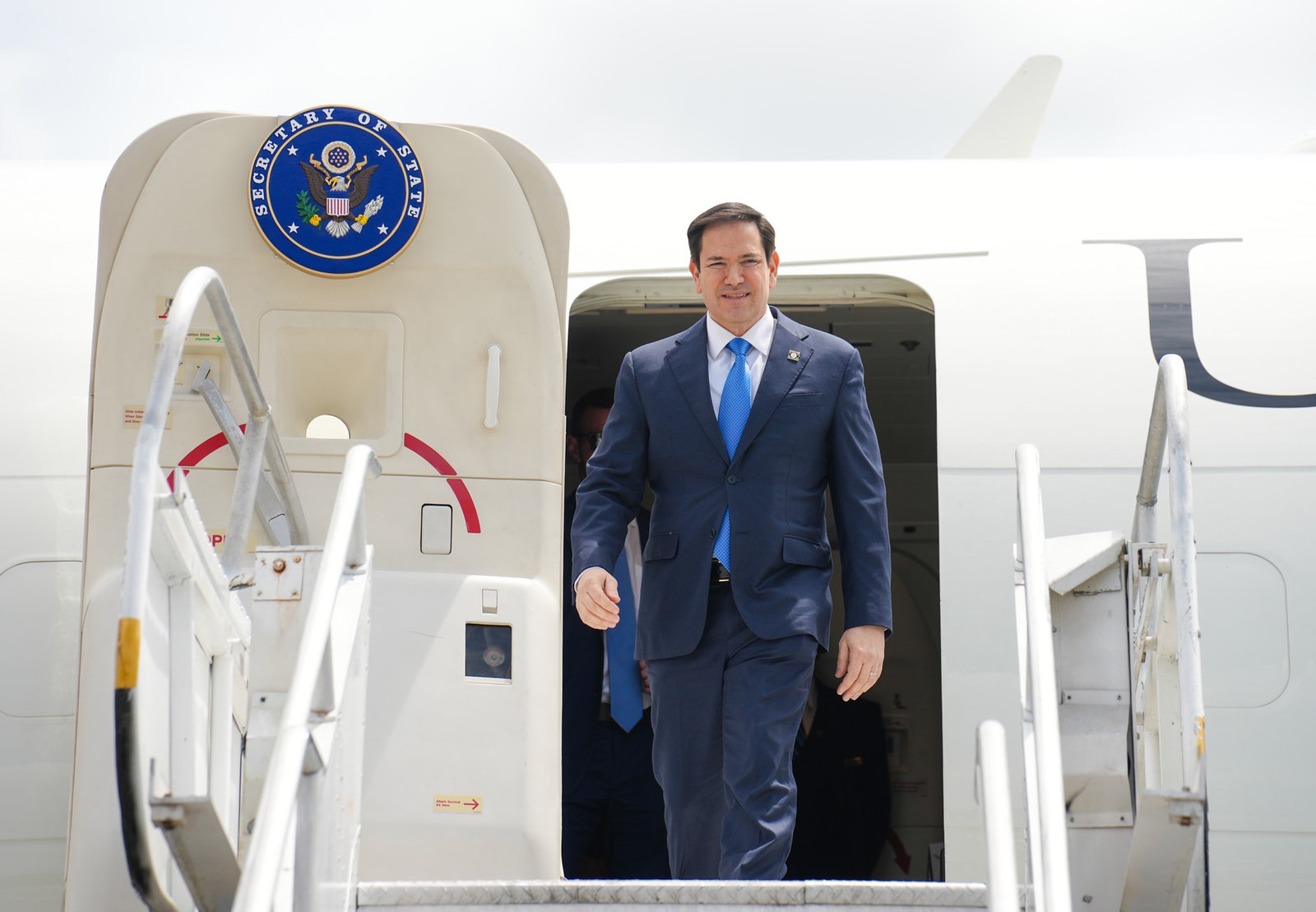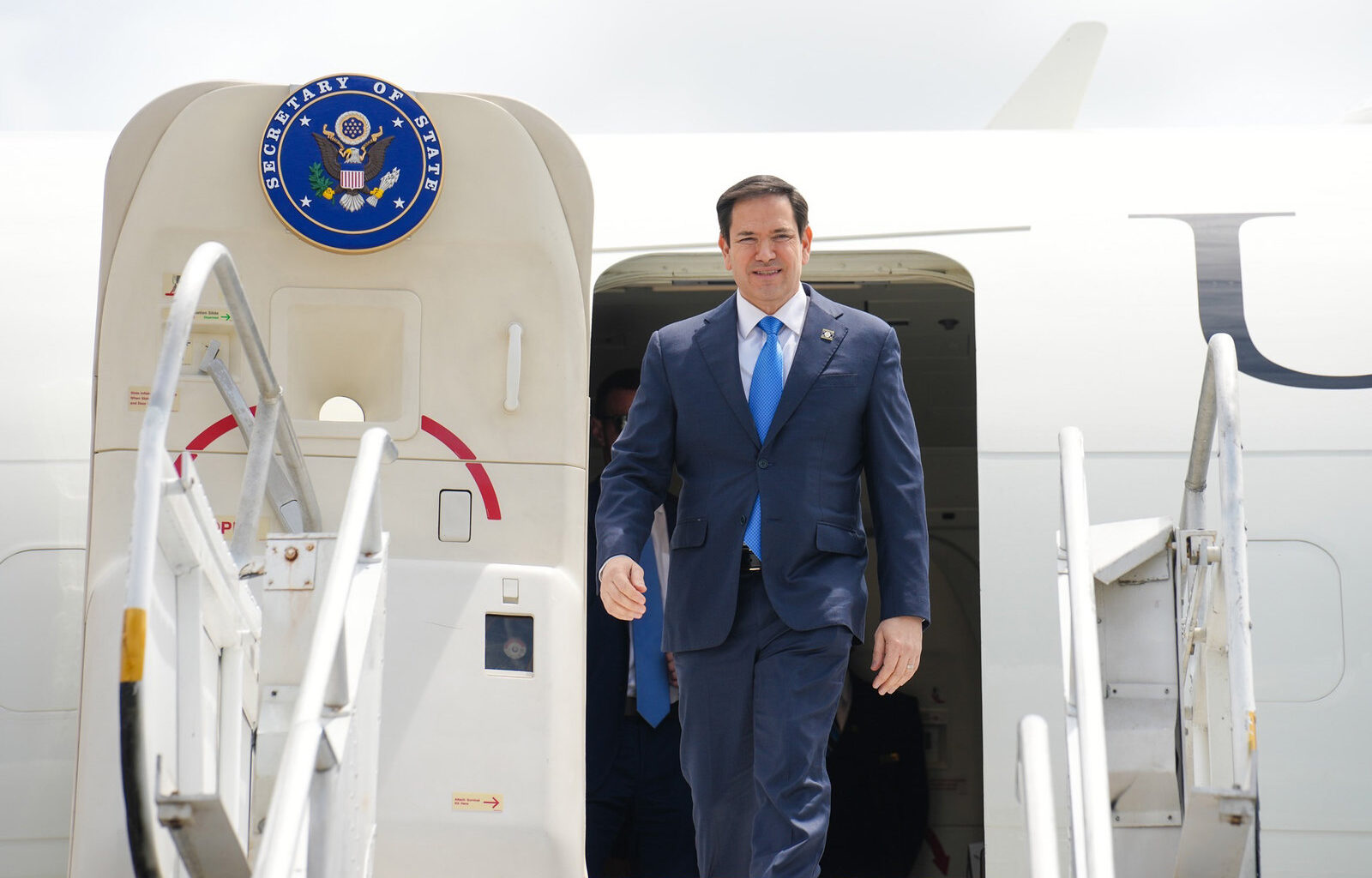
Ahead of US Secretary of State Marco Rubio’s trip to the Caribbean, which ended Thursday, Washington’s special envoy to Latin America, Mauricio Claver-Carone, described the visit as a historic opportunity for energy security.
“We are in a historic moment in the Caribbean for energy security, which has been the Achilles heel of the Caribbean for so long and its economic development with disproportionately high electricity and energy prices,” according to Claver-Carone.
Rubio’s country-hopping included a stop in Jamaica, where he met with Prime Minister Andrew Holness as well as Mia Mottley and Stuart Young, the respective prime ministers of Barbados and Trinidad and Tobago, and Fritz Alphonse Jean, the Haitian transitional presidential council president.
The state secretary then stopped in Guyana and Suriname where he met with Presidents Irfaan Ali and Chandrikapersad Santokhi, respectively.
Perspective
“Marco Rubio’s March 2025 visit to Jamaica, Guyana and Suriname is important to energy markets. While US policies on Haiti, Cuban medical teams, and migration were signaled to the rest of the Caribbean, the official meetings with the presidents of Guyana and Suriname were important for three reasons,” Scott MacDonald, chief economist at Smith’s Research & Gradings, told BNamericas.
“First and foremost, the US regards the southern energy matrix countries – the visited countries plus Trinidad and Tobago – as important to US national interests, especially with an eye to the new Cold War with China. Second, the US will support Guyana’s territorial integrity vis-a-vis Venezuela which claims two-thirds of the country. Venezuela, along with Cuba and Nicaragua, are seen as platforms for China and Russia in the Caribbean. Three, the Trump administration needs more oil in markets to drive down oil prices in the US, seen as necessary in reducing inflationary pressures,” according to MacDonald, who is also a senior advisor for Global Americans and a Caribbean Policy Consortium fellow.
The analyst adds that “if it [the oil] comes from US companies, like ExxonMobil, Hess and Apache [APA], all the better.” The three operate in the Guyana-Suriname basin.
To shed further light on the possible energy impact of Rubio’s trip, BNamericas provides related takeaways from some of the joint press conferences held in the countries.
Jamaica
“With our stable macroeconomic framework and positive growth trajectory, Jamaica is open for enhanced US investment across multiple sectors, including energy,” said Holness, highlighting his country’s potential as a transshipment hub.
Rubio added that “the United States is going to be producing a lot of liquefied natural gas, which is a very clean fuel that we have in abundance and that we seek to export.”
When announcing its acquisition of New Fortress Energy’s Jamaica business for US$1.06bn, Excelerate Energy pointed to the opportunity for LNG bunkering to serve the wider Caribbean region.
Guyana
Rubio’s visit to Guyana provided a counterweight to Venezuela President Nicolás Maduro’s increased saber-rattling over the latter nation’s claim to Guyana’s Essequibo region.
“I am very pleased at the reassurance of the US in ensuring the safeguard of our territorial integrity and sovereignty… we have committed to working closely together on the deployment of our energy potential, ensuring greater integration, value creation, and regional energy security,” President Ali said.
The US’s energy security interests in Guyana are high on the radar, with Houston-based ExxonMobil holding a 45% operating interest in the flagship Stabroek offshore oil development.
Rubio warned that “it will be a very bad day for the Venezuelan regime if they were to attack Guyana or attack ExxonMobil.”
Suriname
In neighboring Suriname, which is on the cusp of a Guyana-like oil boom, US upstream operator APA holds a stake in offshore block 58, which would be Suriname’s first deepwater contributor of crude.
And in recent days, BNamericas reported that fellow US company Chevron plans to drill an exploration well at shallow water block 5 this year.
“In the interest of further expanding the relationship, mainly in the field of trade and investment, we will work together to attract American investors to Suriname,” President Santokhi said.
Rubio added that “we are going to do everything we can to ensure that American companies and American firms and investors who are looking for opportunities understand there’s real opportunities here.”
On the horizon
Guyana, Suriname and Trinidad and Tobago are all scheduled to have general elections this year.
Under their current government administrations, Guyana and Suriname added new impetus to the growth of the oil and gas sector, and in the case of Guyana, the country has enjoyed a windfall profit, making it one of the world’s fastest-growing economies.
Not all are convinced, however, with opponents in Guyana calling for more transparency, public engagement and oversight of the industry, coupled with growing citizen demands for a larger piece of the oil wealth pie.
Such calls and demands are also shaping voter sentiment in Suriname and Trinidad and Tobago.
